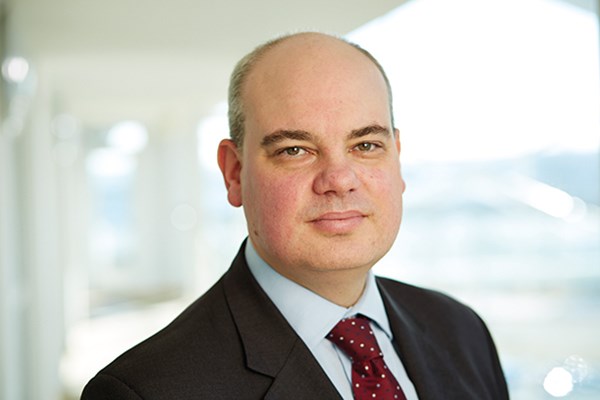The Bus Services Bill, introduced to Parliament twelve months ago, just managed to make it to Royal Assent before this session of Parliament was dissolved for the 2017 snap general election. This is the first in a series of briefings looking at the various powers that the Bus Services Act gives local authorities. We start with an overview of the Act as a whole.
Current bus services
Bus services outside London were deregulated back in 1986 by the Transport Act 1985. Since then, any licensed bus operator outside London can set up a bus service on 56 days' notice. They are paid the Bus Services Operators' Grant (BSOG) towards this but it does not cover the whole cost of running a service, so commercial operators will normally only choose to run a service that is profitable. This can lead to some areas ending up with two or three different operators on the same routes, whereas other, not so profitable, areas miss out.
Local authorities can tender for operators to run "socially necessary" services to unprofitable areas and they are paid the BSOG by the Department for Transport, which they then top up with their own funding, to make them more commercially attractive to operators who might bid for them. However, the cuts to local authority spending since 2010 have led to many local authorities cutting their funding for subsidised bus services and therefore reducing their attractiveness to potential operator bidders.
In all areas outside London (where buses are not deregulated), bus passenger numbers have been in long term decline and fares have risen. Five main bus operators (Stagecoach, FirstGroup, Arriva, National Express and Go-Ahead) between them account for 70% of the market (by number of services registered) and ten smaller operators, split between municipal and private companies, account for a further 11%. There are eleven municipal bus companies left in the UK.
Since deregulation, local transport authorities have had little control over fares, integrated ticketing, and how the bus network integrates into wider transport policy. They can partner with bus companies on a voluntary basis or using a Quality Partnership scheme (introduced by the Transport Act 2000), where the authority provides new infrastructure and in return can enforce certain service standards. The Act extends these existing powers and adds new ones.
New powers in the Act
A word of warning: the way the Bus Services Act is drafted is to add in provisions to existing Acts (the Transport Acts 1985 and 2000) rather than acting as a standalone piece of legislation. This makes it hard to read in context.
The powers that it introduces are enabling powers only. The detail is left to regulations. Draft regulations and guidance on what the government saw as the most important issues was published on 8 February for a six week consultation period. The rest is due later in 2017. We will go into more detail on the draft regulations and guidance in future updates.
Advanced Quality Partnerships
The Act extends the existing Quality Partnerships and renames them Advanced Quality Partnerships (which we will refer to as AQPs). Like Quality Partnerships, local authorities can create AQPs based on providing new infrastructure facilities (and indeed the facilities do not now need to be new), but AQPs can also now be based on bus improvement measures, which could be anything to make buses more attractive, such as increasing car parking charges or removing car parking spaces.
In return for bus operators using the facilities/bus improvement measures, the local transport authority can specify standards that the operators must comply with. These can now include the marketing of services, tickets and fares, or participation in ticketing and smartcard schemes.
The local transport authority has to consult with various people before it can implement an AQP scheme, including all bus operators in the area that are likely to be affected, traffic commissioners, police, other local authorities whose areas are likely to be affected and the Competition and Markets Authority, but interestingly (unlike franchises) it does not have to consult bus operators' employee representatives, even though the Lords tried to include this.
Enhanced Partnerships
These are billed as an alternative to franchising, but are "a sop to the incumbent bus operators who claim that this bill is not needed" according to the Guardian. They are intended to apply to a wider geographical area than an AQP and are made up of two parts: the Enhanced Partnership (EP) Plan and the EP Scheme.
The EP Plan is the higher level document which analyses the local bus market, identifies how bus services contribute to its wider objectives, and sets out how bus services in the area should be improved.
Beneath the EP Plan are one or more EP Schemes. These will set out the detailed actions that the local authority and bus operators will take to improve bus services in some or all of the EP area. These include route requirements (relating to the frequency and timing of bus services) and operational requirements, which may include vehicle emissions standards, common ticketing arrangements and methods of payment, and the way that information is provided to the public. An EP Scheme cannot set the price of single-operator tickets or compel operators to run services that they do not wish to operate.
The crucial difference between and EP and a franchise is that an EP has to have support of "sufficient operators", which will be defined in regulations (there is a test set out in the draft regulations that were published for consultation). So it will be a genuine partnership – at least between the authority and the majority of bus operators in the area.
Franchising
This is the power that has caused the most interest in the Bill as it has passed through Parliament. The Government wanted bus franchising powers to be available to Mayoral Combined Authorities (i.e. authorities with an elected mayor) on the basis that they were sufficiently democratically accountable, and other authorities would need the consent of the Secretary of State for Transport via regulations made under the affirmative procedure (i.e. with the consent of both Houses of Parliament). The House of Lords sought to widen this so that any authority could use franchising powers, but in order to get the Act passed before Parliament prorogued, they agreed to drop this. So Mayoral Combined Authorities have bus franchising powers; others will need explicit consent and this would depend on: the powers the authority had, its governance; the area's economic geography; and the area's track record and ability to deliver on this.
This means that the following areas will have bus franchising powers if they choose to implement them:
- Greater Manchester
- Sheffield City Region
- Liverpool City Region
- West Midlands
- Cornwall (even though it does not have a directly elected mayor, it secured bus franchising powers as part of its devolution deal)
- Cambridge/Peterborough
- West of England
- Tees Valley
Bus franchising will work in a similar way to rail franchises. Local authorities will specify the bus services they want providing, and then bus operators will bid to provide those services. The differences between this and an EP are that it will be down to the local authority to specify the service, rather than the authority and the operators working in partnership; and competition in the market is moved from the road (competing for passengers at bus stops) to the tender process (competing to provide a particular service). The local authority can specify tickets and fares as well as the network attributes of routes, frequencies and hours of operation. This is a key difference between franchising and EPs.
There is a rigorous process that authorities must follow before they can introduce franchising and we will cover that more fully in a later briefing, but in simple terms they must produce a business case which is assessed by an independent auditor and then there must be a statutory consultation.
Open data and ticketing
Section 7 of the Act strengthens the local transport authorities' powers to make joint ticketing schemes and is intended to "future proof" them by ensuring ticketing schemes include contactless payment and take account of what neighbouring authorities are doing, to make travelling across authority boundaries easier.
Section 18 of the Act requires bus operators and local transport authorities to provide information in open data format on routes, timetables, real time information and fares. The idea is to replicate what happens already in London, which has nearly 500 smartphone apps available to help people find their nearest bus stop and check the status of their tube lines or roads. The difference between London and the rest of England, though, is that services outside London are operated on a commercial not a franchised basis and this information is likely to be commercially sensitive.
The Act does not go into detail about what specific information must be provided and how it can be used, but leaves this to regulations. However, before making any regulations the Secretary of State must consult representatives of operators and users, local transport authorities and any other appropriate persons or organisations.
The Government intends to introduce these requirements in stages, with registration data being required first, and fares and punctuality data being added gradually by 2020.
What happens next
The Act achieved Royal Assent on 27 April 2017. The powers to make regulations come into force now; and the remainder of the Act (other than section 17, which would require bus operators to provide audio-visual accessible information, such as Talking Buses) come into force two months after Royal Assent, so on 27 June 2017. Section 17 needs regulations to bring it into force.
Comment
To get the Bus Services Bill passed before parliament dissolved, some key Lords amendments were dropped. One of the key areas of disagreement was the ban on creating new municipal bus companies. As noted earlier, there are eleven remaining council-owned bus companies, and perhaps not coincidentally these are in areas (Nottingham and Reading being examples) where bus use is higher than the national average. Section 22 of the Act however prohibits the creation of new municipal bus companies. The rationale was to keep the commissioning and provision of bus services separate but the Opposition argued it was for political reasons.
Other amendments that fell by the wayside were provisions mandating the use of low-emission buses in AQPs, EPs and franchises after 2019. These were dropped to get the Bill passed, and it is still open to authorities to include such provisions; it will just not be compulsory.
The final amendment that had to be dropped was to give automatic access to franchising powers for all authorities, not just Mayoral Combined Authorities, but again this is not crucial; it just makes it harder for other authorities to prove they have the necessary governance structure and track record.
So the real debate will be whether authorities, who have established that intervention is required, will go down the AQP, EP or franchising route. There are pros and cons to each of these and we will look at them in more detail in future briefings.
The devil really is in the detail with this Act, the detail being left to regulations which we have (mainly) not seen yet. Refining the bus services will be the job of the next Government. This Act is only the beginning but sets the framework in place. There is still everything to play for as the legislation develops.




